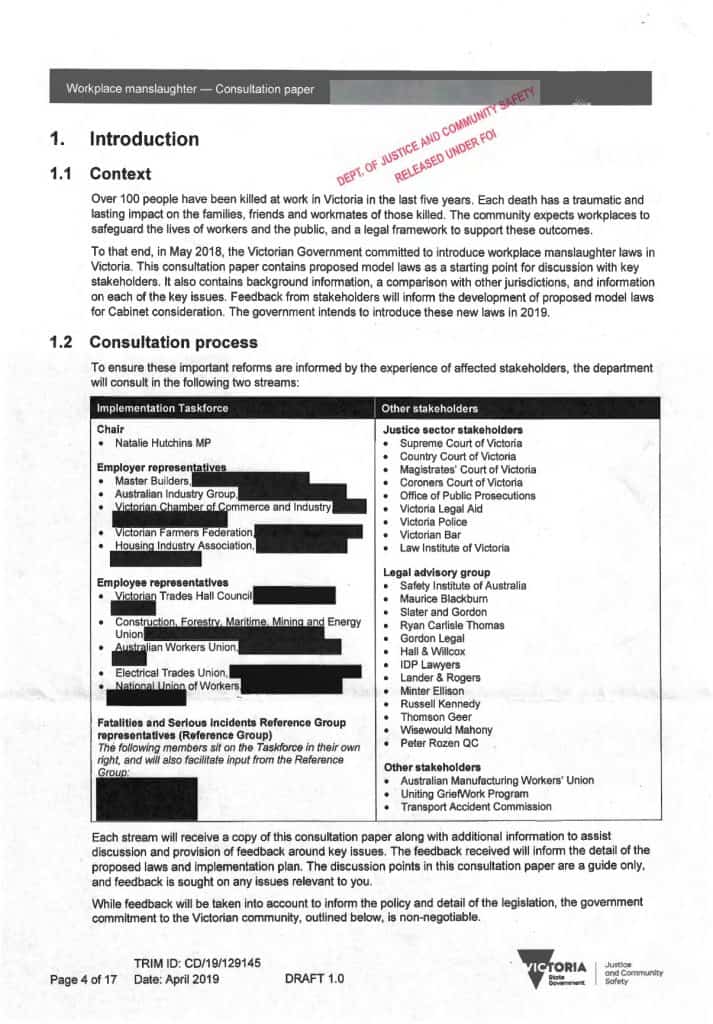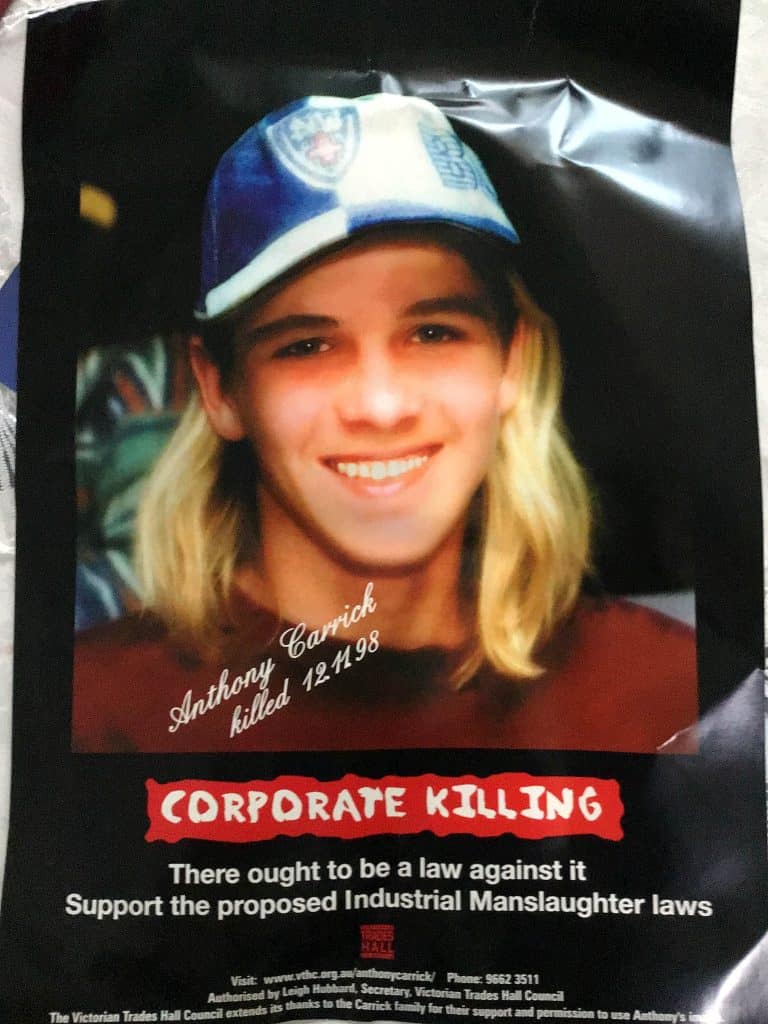
In April this year the Victorian Government’s Workplace Manslaughter Implementation Taskforce raised the following issues in its Criminal Law Reform Consultation Paper, seen by the SafetyAtWorkBlog:
- the definition of “person” in the OHS and proposed Industrial Manslaughter laws
- the establishment of negligence and the standard of care expected by the reasonable person
- the extension of Industrial Manslaughter offence to the deaths of members of the public
- whether a decision or act causes the death or only contributes to it
- exceptions to the laws beyond just volunteers
- inter-agency cooperation and coordination for effective prosecutions.
If you have any information about safety-related issues or incidents, remember that SafetyAtWorkBlog operates a confidential and anonymous information line at https://safetyatworkblog.whispli.com






